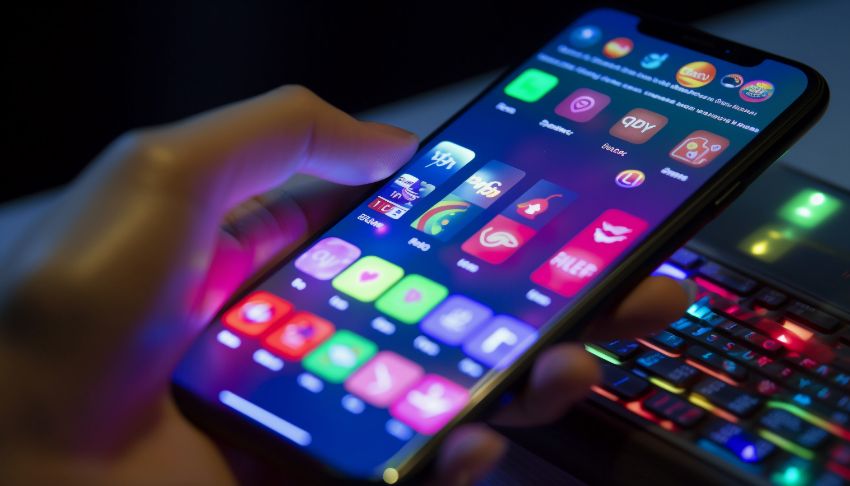The rise of mobile gambling apps has significantly transformed the gaming industry, offering players a convenient and accessible way to enjoy their favorite games on-the-go. This trend has gained widespread popularity due to the ease of use and flexibility it provides to users.
However, the impact of this shift on traditional brick-and-mortar casinos is a complex issue influenced by various factors such as technological advancements, changing consumer preferences, and regulatory constraints. Understanding the implications of this trend requires an in-depth analysis of how it affects the overall gambling landscape.
Evolution of Mobile Gaming Technology
The evolution of mobile gaming technology in recent years has brought significant advancements in graphics, processing power, and connectivity, enhancing the overall gaming experience on smartphones and tablets. This progression has enabled more immersive and interactive gameplay, ranging from simple puzzle games to complex multiplayer battles.
The integration of augmented reality (AR) and virtual reality (VR) features has further blurred the lines between the virtual world and reality. The convenience of mobile gaming has made it more accessible, allowing users to enjoy their favorite games on the go.
Also, check out our article about The Most Innovative Casino Technologies
Benefits of Mobile Gambling Apps
The development of mobile gambling apps has transformed the gaming landscape by allowing easy access to a variety of casino games on mobile devices. Users can enjoy popular games like slots and poker at their convenience, with the added advantage of exclusive bonuses and promotions offered by these apps. The secure transaction methods available on mobile gambling apps ensure a smooth and secure gaming experience for players. Additionally, the privacy and discretion afforded by playing on a mobile device enhance the overall gaming experience.
Impact on Traditional Casinos
The increasing popularity of mobile gambling apps has presented traditional casinos with a new challenge in maintaining their customer base and competitiveness within the gaming industry. The ease of access and convenience provided by these apps has led to a shift in consumer behavior, with many individuals opting to engage in casino games from the comfort of their homes. This shift has resulted in a decline in the foot traffic at physical casinos, impacting their revenue streams significantly.
To address this shift, traditional casinos are investing in their mobile platforms, offering various incentives and bonuses to attract and retain players.
Despite these efforts, the rise of mobile gambling apps continues to pose a considerable threat to the traditional casino business model. As a response, traditional casinos are compelled to enhance their overall customer experience by introducing new technological features and improving their services to remain competitive in the digital era. The need to innovate and adapt to changing consumer preferences is crucial for traditional casinos to stay relevant amidst the growing trend of mobile gambling.
Regulatory Challenges and Concerns
With the proliferation of mobile gambling apps, traditional casinos are grappling with a range of regulatory hurdles and concerns. An essential issue is the necessity to revise existing regulations to encompass the online realm where these apps function. Regulators are particularly focused on ensuring fair play, preventing underage gambling, and addressing problem gambling in this digital environment.
The transnational nature of mobile apps also raises jurisdictional and enforcement challenges. Moreover, there are growing apprehensions about data security and privacy as users share personal and financial details on these platforms.
As the popularity of mobile gambling apps continues to surge, regulators face the ongoing task of striking a balance between promoting innovation and safeguarding consumer interests in this swiftly evolving landscape.
Future Trends and Innovations
In light of the regulatory challenges facing mobile gambling apps, the industry is progressing with notable advancements and future trends.
One key trend is the incorporation of virtual reality (VR) technology into mobile gambling platforms, offering players immersive and realistic gaming experiences.
Furthermore, artificial intelligence (AI) is being leveraged to personalize gameplay by providing tailored recommendations and promotions based on individual preferences and behaviors.
Another upcoming innovation involves the integration of blockchain technology to bolster security and transparency in transactions, ensuring fair play and secure payments.
These developments indicate a promising trajectory for mobile gambling apps as technology continues to transform the landscape of online gaming.
Conclusion
In summary, mobile gambling apps have significantly impacted the gaming industry by offering enhanced convenience and accessibility to players. The continuous technological advancements and the growing interest in mobile gaming indicate a promising future for these apps. Traditional casinos need to adapt to the changing market dynamics to stay competitive. The emergence of mobile gambling apps has reshaped how individuals engage with casino games, influencing the direction of the gaming industry.

